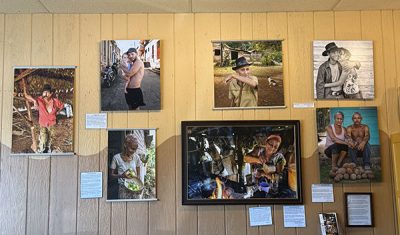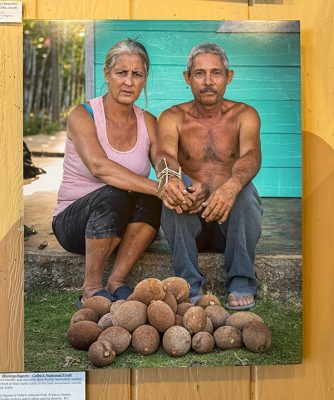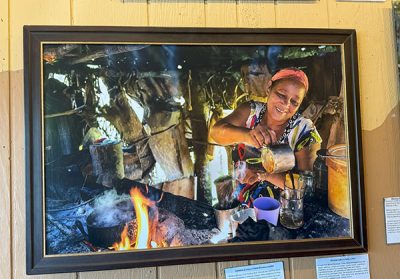Cuba Meets Westchester Through a Pleasantville Resident’s Lens
News Based on facts, either observed and verified directly by the reporter, or reported and verified from knowledgeable sources.

By Ava McGinty
Customers walking into The Black Cow Coffee Co. in Pleasantville are greeted with a smile from the staff and Nilda Guttierez Romeriez.
Dressed in a patterned shirt, pouring a rich cup of Cuban coffee into a glass jar, she looks entirely at home, a story that lives in a moment frozen in time.
She is one of many featured in Portraits From the Cuban Backroads, photographer Todd Shapera’s tribute to rural Cuba, on display at the café through May.
From 2016 to 2023, the Pleasantville resident took numerous trips to Cuba, each time with the same goal: telling the stories of the people he met.
His work earned the 2023 Larry Salley Award for Photography from ArtsWestchester.
“I want to demonstrate our shared humanity, to show their inner spirit,” Shapera said in a recent interview.
The exhibit mirrors Shapera’s travel approach. Rather than rushing to see a vast portion of the island, he chose to focus deeply on specific regions and truly get to know the people and their culture.
Traveling by cycling or hiking, Shapera often spent anywhere between a few hours or even days with the people he photographed, often waiting to introduce the camera, allowing for a more natural connection. He said it helped him connect with people and tell their stories more authentically.
“Going to Cuba, this type of travel is in my comfort zone. I’m happy when I do this,” he explained.
Many of the people he met shared stories of hardship, pride, and resilience.

In one passing exchange while traveling through the Sierra Maestra mountains, Shapera photographed a man he described as looking friendly and kind. Later, he found out that the man in the picture is Luca Castillo Perez, grandson of the munitions supplier to Fidel Castro during his time in the Sierra Maestra mountains in the 1950s.
Another story that stood out to Shapera came from a former doctor. He photographed the man holding his young daughter, who told Shapera he had once practiced medicine but left the profession due to low pay, eventually turning to taxi driving instead.
However, after the sharp decline in tourists starting in 2017, partly due to the U.S. embargo and travel restrictions, his income dropped even further, prompting many people he knew to leave the island.
In another conversation, a woman told Shapera, “There is no future for my children here.”
On a trip in 2021, Shapera met a couple on a farm in the mountains outside of Barroca, Cuba. Just hours earlier, the man had taken a 20-foot fall from a tree while harvesting mamey sapote, the country’s national fruit. He injured his wrist breaking the fall and is photographed with a makeshift splint, seated behind a pile of fresh harvest. A few years later, the couple’s daughter and grandchildren immigrated to America, eventually connecting with Shapera after their journey.
These chance encounters gave Shapera a deeper perspective on life in rural Cuba, a perspective he hopes café visitors will carry with them.
“It really is the luck of the draw where you are born; we are lucky to be here in Westchester,” noted Shapera, who has lived in Pleasantville for nearly three decades.
Every month, The Black Cow Coffee Co. highlights a new artist and their work by displaying it on their wall for customers to see.
“Displaying the photos in the café is an opportunity to share art with the community,” Shapera said.
He said he finds it grounding to capture the lives of the Cuban people and then return to Westchester, where he photographs weddings and other local events. While his photography in Cuba and Westchester may seem wildly different, he sees a shared purpose in both: storytelling.

Above all, Shapera wanted the people he photographed to feel remembered. On return trips to Cuba, he brought back printed copies of portraits from previous visits to give to people he had met.
Community members have responded warmly to the exhibit, with several approaching him at The Black Cow to compliment his work.
Reflecting on his project, Shapera said, “Right now, it is so important because political dialogue can be so cruel to them [immigrants]. They are so kind and humble.”
A panel on the café wall echoes this sentiment, briefly explaining the exhibit and concluding: “The humble Cuban people deserve a kinder, more humane, more engaged U.S. neighbor.”

Examiner Media – Keeping you informed with professionally-reported local news, features, and sports coverage.
